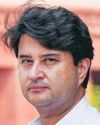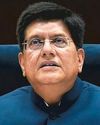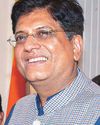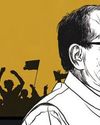
Does an environment with more policy reversals fuel policy risk and inhibit private investment? The flourishing of the market economy does not require autocratic control with a strong government that periodically releases irreversible decisions. The important thing is getting to good policies, and dispersion of power is a means to that end. There are pathways to do policy in ways which induce less policy risk. While there will always be the tactical detail of day-to-day policy decisions, policy coherence, and strategic thinking in policy help reduce policy risk. The animal spirits of the private sector matter and these are shaped by the strategic view of improvements in the Indian state.
Economic growth is forged in conventional private investment in physical capacity (eg increase in the fixed assets as seen in annual reports) and in private investment in obtaining higher productivity. Such investment is risky and is greatly influenced by the stance of the state. Do the recent policy reversals have an adverse impact on perceived policy risk and thus on private investment? It is unlikely.
Difficult negotiations between multiple political parties, which lead to twists and turns in policy, are not inconsistent with economic success. The advanced economies of the world are vastly successful in economic terms (eg US per capita gross domestic product is about 10 times bigger than that in India), and all advanced economies are liberal democracies where power is vigorously contested, and there is a day-to-day evolution of policy decisions reflecting the tug and pull of rival interests and views.
هذه القصة مأخوذة من طبعة September 02, 2024 من Business Standard.
ابدأ النسخة التجريبية المجانية من Magzter GOLD لمدة 7 أيام للوصول إلى آلاف القصص المتميزة المنسقة وأكثر من 9,000 مجلة وصحيفة.
بالفعل مشترك ? تسجيل الدخول
هذه القصة مأخوذة من طبعة September 02, 2024 من Business Standard.
ابدأ النسخة التجريبية المجانية من Magzter GOLD لمدة 7 أيام للوصول إلى آلاف القصص المتميزة المنسقة وأكثر من 9,000 مجلة وصحيفة.
بالفعل مشترك? تسجيل الدخول

JSW MG Calls For GST Cut On Plug-In Hybrids
JSW MG Motor has requested the Centre to reduce goods and services tax (GST) on plug-in hybrid cars, which is currently 28 per cent.

India's Economy in Structural Slowdown: UBS
UBS Group AG is recommending investors short India's rupee and go underweight on the country's stocks amid slowing economic growth, a trend that could worsen after Donald Trump takes over as US president.

DoT to get 687 MHz of unused spectrum
This is part of one-time re-farming of unused airwaves allocated to ministries

Goyal to travel to Brussels today for FTA talks with EU
Meeting may give 'political direction' to expedite negotiations

Rebel as a boy next door
At a time when there were no monitors to preview shots, directors would use viewfinders to determine the dimensions of the frame, the lens required for the camera and the angle from which to shoot.

INDIA'S EDTECH MKT MAY REACH $29 BN BY 2030
India's edtech market, which was valued at $7.5 billion in 2024, is projected to reach $29 billion by 2030, according to a latest report.

Goyal bats for reducing auto component imports
Commerce and Industry Minister Piyush Goyal on Friday asked the auto components industry to start manufacturing machines and reduce import dependency.

Mild-mannered, but no pushover
Ever since Shivraj Singh Chouhan left Bhopal for Delhi to become agriculture and rural development minister in the Narendra Modi 3.0 government, he's been feeling a bit lonely.

Maruti Aims to Become India's Largest EV Maker Within a Year
Company's new launch e-Vitara will be available with a range of more than 500 km
Regulator opposes plea filed by Kirloskar Oil Engines in SAT
The Securities and Exchange Board of India (Sebi) on Friday submitted to the Securities Appellate Tribunal (SAT) that its advisory to Kirloskar Oil Engines (KOEL) was administrative in nature and thus non-appealable.